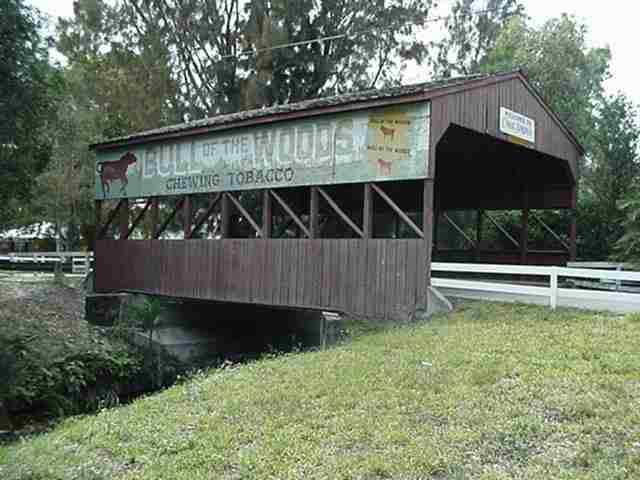by Howard Melamed
August 6 First Draft
On January 1 of 2002 the entire state of Florida will be under a new Florida Building Code. In the wake of trying to standardize the construction industry in the state, our politicians have left us with a code that might compromise the quality and safety of construction. Yet, it has been passed by the Florida State Legislature and will be come law whether you like it or not.
I can’t tell you that as a builder I have been completely happy with all of the building departments in South Florida. I have had my fill of the bureaucracy of the system that forces you to comply with silly requests such as handicap garbage dumpsters, and the nightmares of inspectors having chips on their shoulder as they laugh while they fail your inspection and force you to pay re-inspection fees. But for the most part, I have found the building departments of South Florida to be filled with professional, courteous good people having one common goal: Building a better building that complies with the building code. That translates into a safer and better home or commercial building. It translates into increased values of our properties and a security of sleeping well at night knowing that your roof isn’t going to collapse on you or leak….at least not for a few years after you bought it ![]() .
.
 Of course I wanted to see a change in the building code. I wanted it to be less bureaucratic and more user friendly. I wanted to see the requirement to inspect a portable toilet for a construction site removed, and maybe a little less inspections of items that are of no risk to anyone, like drywall screw inspection on partitions that only separate rooms. What I didn’t want is what we have ended up with. A code that does not maintain our current standards and one that relinquishes the tightly controlled inspections to the very same people that need to be inspected. The contractors.
Of course I wanted to see a change in the building code. I wanted it to be less bureaucratic and more user friendly. I wanted to see the requirement to inspect a portable toilet for a construction site removed, and maybe a little less inspections of items that are of no risk to anyone, like drywall screw inspection on partitions that only separate rooms. What I didn’t want is what we have ended up with. A code that does not maintain our current standards and one that relinquishes the tightly controlled inspections to the very same people that need to be inspected. The contractors.
History
After Hurricane Andrew, a lot of changes occurred forcing a special code developed solely for Dade and Broward County. Shoddy construction practices and lack of good supervision contributed to incredible devastation to houses in the Dade county area. It can also be said that the intensity of Hurricane Andrew would have destroyed many of the homes no matter what. But there were fringe areas that little or no damage should have occurred where roofs were torn off because there were not enough nails in the plywood and trusses ripped away because there were no hurricane straps. Even though the existing code required it, and even though there were some inspections done, builders , some very large ones, did not follow the code, So Dade and Broward counties instituted strict compliance with building codes, the testing of the materials, and the inspection of the work. So much so that today, project completions are almost always delayed, and South Florida remains one of the most difficult places to build. Homeowners often wait months beyond the estimated date of completion and builders do not give any predictions because they do not know how long the inspection process will take. This command of the industry lead many building departments to exercise too much authority over builders. All too often inspections would take place and fail merely due to differences of opinions within building departments or bureaucratic paperwork that department heads put into place.
 While the inspection process to the builders became a nightmare, the resulting product that was produced by every South Florida builder became better and better. The houses are safer than ever before, and the quality of the work from the structural, electrical, plumbing, roofing, and mechanical aspects are better than most parts of the entire country.. This has come at a cost, but from the looks of sales in South Florida, no one really has complained, except of course the contractors, architects and engineers.
While the inspection process to the builders became a nightmare, the resulting product that was produced by every South Florida builder became better and better. The houses are safer than ever before, and the quality of the work from the structural, electrical, plumbing, roofing, and mechanical aspects are better than most parts of the entire country.. This has come at a cost, but from the looks of sales in South Florida, no one really has complained, except of course the contractors, architects and engineers.
An outcry of criticism occurred and lobby groups came into play to force the hand of the government to change the building code and make it less restrictive. Many also wanted one code for the entire state, while others did not want the strict South Florida standards up in the northern parts of this state. In the end, we have a new building code with many changes and also many liberties. The Florida Building Code is to be applied state wide with local authorities having little or no say at all.
The Future
While there are many great improvements to the code, cities will no longer be compelled to fund building departments to carry out inspections on the construction site. The building official of a city could allow construction inspections by the architect or engineer that produced the plans or by a licensed inspector. This allows many cities to save money and pass on the liability to the designer. In our city, it might be a way that the city manager can reduce the cost of government by eliminating most of our building department.
Is this a good thing? From my experience there are some architects and engineers in South Florida that are not able to perform these inspections and will miss important items that only an experienced building inspector will pick up. Perhaps it will be the wrong size reinforcing steel placed in the formwork, or it might be that there are not enough nails in the hurricane straps. It might be that the plastic pipe was not properly tested for pressure, or that the roof membrane was applied to wet plywood. All of these plus more could contribute to the failure of a system inside a house or building.
 Can we count on the architectural and engineering industry of South Florida to protect you and me? They are not well regulated and do not for the most part carry insurance to protect against error or omissions. Their professional associations are too week to be of any use as a regulatory agency, and the Department of Professional Regulation of the State of Florida is nothing more than another governmental organization sucking the sap out of the pockets of the taxpayers and professionals, with very little to show for it. We still have architects and engineers that should not be licensed in our state. Ask any building department. They will tell you some horror stories in dealing with them, but of course, will never mention any names.
Can we count on the architectural and engineering industry of South Florida to protect you and me? They are not well regulated and do not for the most part carry insurance to protect against error or omissions. Their professional associations are too week to be of any use as a regulatory agency, and the Department of Professional Regulation of the State of Florida is nothing more than another governmental organization sucking the sap out of the pockets of the taxpayers and professionals, with very little to show for it. We still have architects and engineers that should not be licensed in our state. Ask any building department. They will tell you some horror stories in dealing with them, but of course, will never mention any names.
The real problem is that as in the past building codes, the new code does not require architects or engineers to carry insurance. Therefore uninsured architects and engineers may be inspecting the work, and there will be no recourse against them should they fail in their duties. With this happening, there is no one to sue effectively and no insurance company to claim from should the need arise. Many will tell you that the situation is going to be no different than we have now. Except the difference is that today we have an extra pair of unbiased eyes looking at the building of your home, and tomorrow, that pair will be replaced with one with two thick sunglasses supplied by the contractor. In effect we have removed a check from the checks and balances.
All too often do I see some engineers and some architects in this state willing to put their seal to anything , even toilet paper, in order to receive the paycheck or to please their future client. When the contractor is paying the architect and engineer, where do you think the allegiance of some of them will lie? It is too easy for the builder to make it worth while for them to turn their heads and to accept something that the building departments would not. The difference is that if a building inspector working for the city should take a bribe, he faces criminal prosecution. In the case of the architect or engineer taking more money, he faces a better vacation, with a little more spending money.
At least if you were going to allow the architects and engineers to inspect the work, force them to have a minimum insurance requirement. The one thing you can count on with insurance companies is that they can regulate any industry. An architect or engineer that cannot obtain insurance should not be allowed to practice in our state. That’s the way it is in most other parts of the world. It should be that way here too.
 There are of course very competent architects and engineers in our state. All too often are they called upon to compete for price from some of the less competent ones. Professionals that will lower their price and standards just to secure the contract removes the ability of those that are truly great to practice. The average developer and builder is only interested in the bottom line: Cost. They will go to the lowest priced architect to design the house and then supervise the work. That is the reality of building down here. There is an old saying in the industry: “I know an architect that can produce a set of bad plans cheaper than anyone else”. The same architect will be inspecting the work.
There are of course very competent architects and engineers in our state. All too often are they called upon to compete for price from some of the less competent ones. Professionals that will lower their price and standards just to secure the contract removes the ability of those that are truly great to practice. The average developer and builder is only interested in the bottom line: Cost. They will go to the lowest priced architect to design the house and then supervise the work. That is the reality of building down here. There is an old saying in the industry: “I know an architect that can produce a set of bad plans cheaper than anyone else”. The same architect will be inspecting the work.
Towards the fall, you will see a slowdown of work in the construction industry, as most builders will wait until January 1 to hand in their plans for permits. They too will notice the benefit of having no building inspectors on the job. We are about to head into a time where the foxes have the run of the hen house. We are about to see what happens when common sense is turned aside for political expediency. The construction industry will never be the same.
If I were you, buy your home now or one that is permitted before January 1, while the current strict building code is still in force and the Building Departments still have control over the quality of the work and the safety of our lives.



 Click Play Button for Live Broadcast or here for more information
Click Play Button for Live Broadcast or here for more information 













